Hormonal Hair Loss: Causes And How To Reduce It Naturally
Know why your endocrine system could be acting up, making you lose your precious tresses.
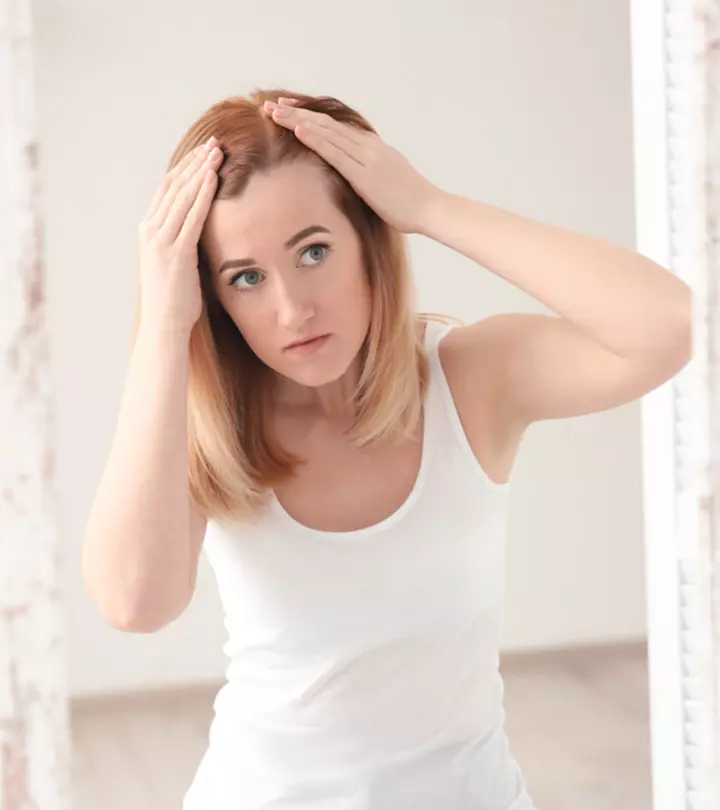
Image: Shuttersrock
Hormonal hair loss occurs because abnormal hormone levels influence hair growth patterns (1). During pregnancy, menopause, or anywhere in between, women experience a lot of stress. Hormonal imbalances caused by stress can lead to hair thinning, excessive hair loss, and even balding This may make many conscious of themselves. However, it may be possible to restore your hair to its former glory.
You can reduce hair loss by taking a few simple steps. First, you need to stay patient and maintain a regular hair care routine. The first step in this journey is understanding which hormones contribute to hair loss and how. Keep reading to learn more.
In This Article
5 Hormones That Cause Hair Loss
1. Testosterone
Testosterone is the male sex hormone. However, testosterone is present in smaller amounts in women too. Due to underlying issues like poor diet, genetics, and PCOS, sometimes women may produce excessive amounts of testosterone. Facial hair, obesity, and female pattern hair loss are common symptoms of excessive production of testosterone.
Testosterone converts to DHT (dihydrotestosterone) catalyzed by the enzyme 5-alpha reductase. This is common in genetically predisposed people. Excessive amounts of this hormone can lead to DHT hair loss. It miniaturizes the hair follicles, which leads to the excessive falling of hair (2). One of the ways to reduce testosterone naturally is to lose weight (3). Talk to a doctor about treatment options.
Note: Finasteride is not recommended for women of childbearing age.
2. Pregnancy Hormones
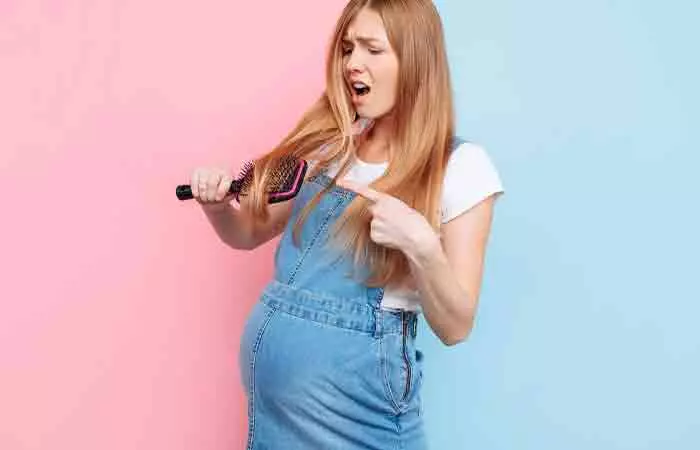
About 40-50% of women experience excessive hair shedding from one to five months of pregnancy. This hair loss, known as telogen effluvium, occurs due to changes in estrogen and progesterone levels (4). Hair loss usually occurs 2-4 months after the delivery and may even get delayed due to breastfeeding. During pregnancy, the increase in estrogen helps maintain the hair in the anagen phase (growth part of the cycle). However, the sudden withdrawal of the pregnancy hormones causes all the overdue anagen hairs to suddenly enter catagen, which then means the telogen hairs will shed a few months later. Androgenic alopecia (female pattern hair loss) also occurs in genetically predisposed women after childbirth (5).
Monica, a mom and a blogger, shared her experience of going through postpartum hair loss. She said, “About four months after Isla was born, I started losing my hair. It was coming out in clumps! I had some bald patches and majorly thinning hair. The hair loss got so bad that a few weeks later our super had to come and snake the shower drain (i).”
3. Thyroid Hormones
Hypothyroidism or hyperthyroidism can cause diffuse alopecia called telogen effluvium (6). They can cause an autoimmune condition called alopecia areata in women. Having thyroid disease can trigger Alopecia areata. It is characterized by a circular pattern hair loss. According to a study involving 4.16 million UK adults and children, the incidence rate of Alopecia Areata (AA) was found to be 0.26 cases per 1000 person-years. In 2018, the point prevalence of AA in adults was 0.58%. The onset of AA was most commonly observed between the ages of 25 and 29 for both males and females, although the peak was slightly broader among females. The study also revealed that individuals of nonwhite ethnicity, particularly those of Asian descent, were more likely to present with AA, with an incidence rate ratio (IRR) of 3.32.
Hyperthyroidism and hypothyroidism are also linked to autoimmune conditions such as Graves disease and Hashimoto’s disease. PCOS (polycystic ovarian syndrome) may also cause diffused hair loss (7).
4. Menopause Hormones
Menopause can also impact the hair growth cycle in women, especially if androgenic alopecia was already diagnosed prior to hitting menopause. This condition is called menopause hair loss, where hormonal shifts visibly affect the hair’s normal growth pattern.
Androgenetic alopeciai A common hair loss condition, also known as pattern baldness, observed in both men and women. usually begins with hormonal changes after puberty, pregnancy, and menopause. Changes in sex hormones and an increase in stress-associated hormones may lead to female pattern hair loss during and after menopause (8), (9).
5. Stress Hormones
Stress associated with pregnancy, delivery, menopause, or any other factors can lead to the secretion of cortisol. This stress hormone affects the cell cycle of hair follicles (10), (11).
These are the various hormones that cause hair loss. So, how can you reduce or restore hormonal balance to regrow your hair? The good news is, there are hair loss treatments that you can try to reduce hormonal hair loss naturally. Scroll down to find out how.
Key Takeaways
- Disturbances in sex, stress, thyroid, and other hormones may lead to heavy hair loss.
- A balanced diet, regular physical activity, and a good hair care routine can help reverse hair loss.
- Exercise and yoga may aid blood flow to the hair follicles and may maintain hair health up to a certain extent. However, they may not correct the hormonal deficiency.
How To Reduce Hormonal Hair Loss Naturally
- Change Up Your Diet

To balance the hormones and improve hair growth, it is extremely important to change your diet. Clean and healthy food always has a positive impact on your body and mind. It is absolutely necessary to stay away from all the sugary treats, salty foods, and foods laden with trans fats (candy, burger, pizza, fries, pretzels, etc.). Here’s what you should be eating instead:
Vegetables: Spinach, bok choy, arugula, cabbage, lettuce, chard, radish greens, beetroot, carrot, broccoli, tomato, cucumber, asparagus, radish, turnip, and pumpkin.
Fruits: Apple, peach, orange, lemon, grapefruit, apricot, prune, papaya, pineapple, tangerine, nectarine, watermelon, muskmelon, and avocado.
Protein: Eggs, mackerel, tuna, salmon, haddock, basa, ground turkey, lean beef, chicken breast, organ meat, kidney beans, garbanzo beans, lentils, soybean, and tofu.
Dairy: Milk, cheese, buttermilk, and yogurt.
Seeds And Nuts: Pepita, sunflower seeds, flax seeds, almond, walnuts, and cashew.
Fats And Oils: Olive oil, avocado oil, and clarified butter (ghee).
- Get A Head Massage
Head massage is said to work well for stimulating hair growth, though this claim has not been substantiated by any scientific research. If you want to know how to get thicker hair, a head massage is a good place to start. Massage your entire head and neck with coconut oil or almond oil gently in a circular motion for 10-15 minutes at least twice a week. It helps improve blood circulation, which helps the nutrients to reach the hair roots. Head massage also helps you relax, an additional value for people going through a significant life ch[ range.
 Quick Tip
Quick Tip- Apply A Hair Mask Every Week
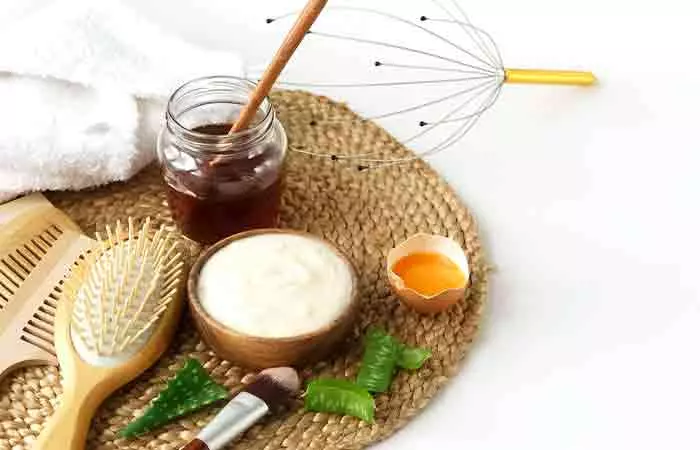
You have to tackle the problem of hair loss due to hormonal imbalance internally as well as externally. This means, apart from changing your diet, you must also take care of your scalp and hair health externally. The easiest way to do so is to apply a hair mask once every week. However, the masks can only improve your hair texture and may not treat or reverse hair loss due to hormonal changes.
Coconut Oil And Castor Oil: Mix equal parts of coconut oil and castor oil. Massage the oil into your scalp and hair. Wear a shower cap and wait for 45 minutes. Wash off the oil with shampoo and conditioner.
Egg White Mask: Crack an egg and separate the white and the yolk. Lightly beat the egg white. Section your hair and apply the egg white from the roots to the tips with a brush. Wear a shower cap and wait for 30 minutes before washing it off.
Henna Mask: Mix 5-7 tablespoons of henna with 2 tablespoons of shikakai and 1 tablespoon of reetha. Add warm water and mix it. Let it steep overnight. Apply coconut oil to your hair. Section your hair and use a brush to apply the henna hair mask from the roots to the tips. Wait for 60 minutes before washing it off.
Note: Henna imparts an orangish tinge to the hair. Do not use it if you have blonde or colored hair. Just use shikakai and reetha instead.
Aloe Vera And Lemon Juice: Mix 3 tablespoons of aloe vera with 1 tablespoon lemon juice. Apply it to your scalp. Massage your scalp gently in a circular motion for 10 minutes. Wait for 20 minutes before washing it off.
 Did You Know?
Did You Know?- Do Yoga For Hormone Balancing

Yoga, especially Sirsasana (head stand), is said to be amazing for hair growth. It increases blood circulation and enables the hair follicles to be nourished with the nutrients that boost hair growth. Yoga is also helpful for restoring hormonal balance. Kapalbhatii A rapid breathing practice for body purification that involves forced exhalation and inhalation. , Anulom Vilomi A type of controlled breathing practice that involves using both nostrils alternately to inhale and exhale. , baby pose, and Surya Namaskar are a few yoga poses that can help improve your hair health.
- Do Any Form Of Exercise Regularly
Apart from yoga, you must include some form of exercise into your daily routine. Go for Zumba, kickboxing, HIIT, walking, running, swimming, or any other sports to keep physically and mentally fit. Exercising helps secrete serotonin, which helps reduce stress and inflammation in the body. That’s why we feel good after taking a walk at the end of the day. Hormonal imbalance caused due to improper diet or any other factor can be reduced significantly if you exercise regularly.
- Drink Adequate Water
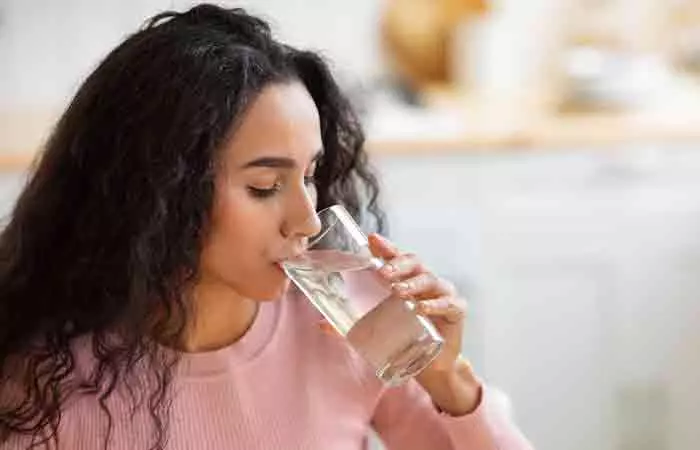
Water helps flush out toxins and improve the circulation of the nutrients required for good hair growth. Drink at least 2-3 liters of water every day. If you work out, drink 3-4 liters of water. You can also add water to your system by consuming freshly pressed fruit juice, fruits, and detox drinks.
- Sleep Well Every Night
Pregnancy, menopause, additional stress at work or home, and sleep deprivation cause cortisol secretion. This, in turn, causes chronic inflammation due to toxin build-up. Getting sound sleep for 7-8 hours is best to reduce inflammation and allow the hair follicles to complete the growth cycle and prevent premature termination of hair growth.
Infographic: 5 Natural Ways To Reduce Hormonal Hair Loss
Increased testosterone and cortisone levels can cause thinning hair or excessive hair loss in women. This may cause distress and make them feel conscious. But don’t worry, we have got you covered. Check out the infographic below for simple and natural ways to reduce hormonal hair loss and restore your hair to its former natural glory.

Illustration: StyleCraze Design Team
To recap, a change or fluctuation in hormone levels may lead to serious hair loss. When you are pregnant, facing menopause, or dealing with stress, your hormone levels change. The hormones that are commonly known to cause hair loss are testosterone, pregnancy hormones, thyroid hormones, menopausal hormones, and stress hormones. There are a few tips you can use to reduce hormonal hair loss naturally, like changing your diet, massaging your head, applying hair masks regularly, and trying yoga for hormonal balance. Try to relieve stress and get enough sleep on a daily basis as well.
Frequently Asked Questions
How do I know I have a hormonal imbalance?
Some hormonal imbalances have prominent signs, like changes in facial hair, acne and obesity. Pregnancy, menopause, and increased stress at work or home can also trigger hormonal imbalance. However, we recommend you see a doctor to determine if your hair loss is due to hormonal imbalance.
How long does it take for hair to grow back after hormonal hair loss?
Hair restoration may take a while and require many lifestyle changes and hair care habits. It takes 6 months to about a year (or more) to grow your hair back from hormonal hair loss. Don’t lose heart because you can reduce hair loss and regrow your hair if you take proper care of your diet and lifestyle. Also, consult a doctor to seek the best treatment. Dermatologists and trichologists can also help with all hair and scalp issues.
What is the best hair loss treatment for hormonal hair loss?
Some of the possible treatments for hormonal hair loss include the use of medications like minoxidil, corticosteroids, and ketoconazole. Light therapy, platelet-rich plasma, or hair transplant may also work in some cases.
What supplement is good for balancing hormones?
Some commonly used supplements for balancing hormones include magnesium, vitamin D, Diindolymethyl (DIM), and certain probiotics.
Does magnesium help with hormones?
Yes. The thyroid hormones, sex hormones (estrogen, progesterone), stress hormones/steroid hormones (cortisol), and brain hormones all require magnesium to function normally (12).
Is apple cider vinegar good for a hormone imbalance?
Possibly. Apple cider vinegar may improve insulin sensitivity and affect ovulatory hormone levels (13).
Do bananas affect hormones?
There is a lack of scientific evidence that bananas can affect hormone levels.
Can cinnamon cure hormonal imbalance?
Possibly. Cinnamon has been shown to improve menstrual cyclicity in PCOS patients and influence insulin sensitivity (14).
Is Ginger good for hormonal imbalance?
Possibly. According to a study, ginger extracts may help balance sex hormones and improve PCOS (15).
What is the difference between Male Pattern Hair Loss and Female Pattern Hair Loss?
Both male pattern baldness and female pattern baldness are types of hair loss conditions that affect men and women differently. They are both caused by genetic and hormonal factors but differ in pattern and severity.(16) (17).
Does vitamin B12 deficiency cause hair loss?
Vitamin B12 deficiency may cause hair loss. While studies have explored the link between B vitamins and hair loss, the results still need to be conclusive. Some research has suggested that individuals with alopecia areata (AA) did not exhibit significantly different vitamin B12 and folate levels compared to healthy participants, but another study indicated that low red blood cell folate concentrations were associated with more severe hair loss in AA patients. Additionally, vitamin B12 deficiency was observed in a small percentage of individuals with telogen effluvium. The complexities of this relationship warrant further investigation, as it is clear that vitamin B12’s impact on hair health is multifaceted and influenced by various factors (18).
Hair loss can be caused by hormonal imbalances. Learn how to identify and treat the underlying causes of this issue from this informative video.
Personal Experience: Source
StyleCraze's articles are interwoven with authentic personal narratives that provide depth and resonance to our content. Below are the sources of the personal accounts referenced in this article.
i. My Experience With Hair Loss After Pregnancy (Photo Included)
https://simplyintheflavor.wordpress.com/2015/06/05/my-experience-with-hair-loss-after-pregnancy-photo-included/
References
Articles on StyleCraze are backed by verified information from peer-reviewed and academic research papers, reputed organizations, research institutions, and medical associations to ensure accuracy and relevance. Read our editorial policy to learn more.
- Hormonal Effects on Hair Follicles
https://www.ncbi.nlm.nih.gov/pmc/articles/PMC7432488/ - Alopecia in Women
.https://www.aafp.org/pubs/afp/issues/2003/0301/p1007.html - Hair loss in women
https://pubmed.ncbi.nlm.nih.gov/19341939/ - Hormonal Effects on Hair Follicles
https://www.ncbi.nlm.nih.gov/pmc/articles/PMC7432488/ - Estrogen and progesterone receptors in androgenic alopecia versus alopecia areata
https://pubmed.ncbi.nlm.nih.gov/9557785/ - Thyroid Hormones Directly Alter Human Hair Follicle Functions: Anagen Prolongation and Stimulation of Both Hair Matrix Keratinocyte Proliferation and Hair Pigmentation
https://academic.oup.com/jcem/article/93/11/4381/2627273 - Hair loss and thyroid disorders
https://www.btf-thyroid.org/hair-loss-and-thyroid-disorders - Alterations in Hair Follicle Dynamics in Women
https://www.ncbi.nlm.nih.gov/pmc/articles/PMC3884776/ - Hair loss in elderly women
https://pubmed.ncbi.nlm.nih.gov/20172841/ - Stress and the Hair Growth Cycle: Cortisol-Induced Hair Growth Disruption
https://pubmed.ncbi.nlm.nih.gov/27538002/ - Hair and stress: A pilot study of hair and cytokine balance alteration in healthy young women under major exam stress
https://www.ncbi.nlm.nih.gov/pmc/articles/PMC5397031/ - Activities of Serum Magnesium and Thyroid Hormones in Pre-, Peri-, and Post-menopausal Women
https://www.ncbi.nlm.nih.gov/pmc/articles/PMC6996468/ - Intake of vinegar beverage is associated with restoration of ovulatory function in women with polycystic ovary syndrome
https://pubmed.ncbi.nlm.nih.gov/23666047/ - The effect of cinnamon on polycystic ovary syndrome in a mouse model
https://www.ncbi.nlm.nih.gov/pmc/articles/PMC6194596/ - Comparison of the effects of Ginger extract with clomiphene citrate on sex hormones in rats with polycystic ovarian syndrome
https://www.ncbi.nlm.nih.gov/pmc/articles/PMC5894472/ - Male Androgenetic Alopecia
https://www.ncbi.nlm.nih.gov/books/NBK278957/ - Androgenetic Alopecia
https://www.ncbi.nlm.nih.gov/books/NBK430924/ - The Role of Vitamins and Minerals in Hair Loss: A Review
https://www.ncbi.nlm.nih.gov/pmc/articles/PMC6380979/
Read full bio of Dawn Hilton
Read full bio of Arshiya Syeda
Read full bio of Ramona Sinha
Read full bio of Medha Deb






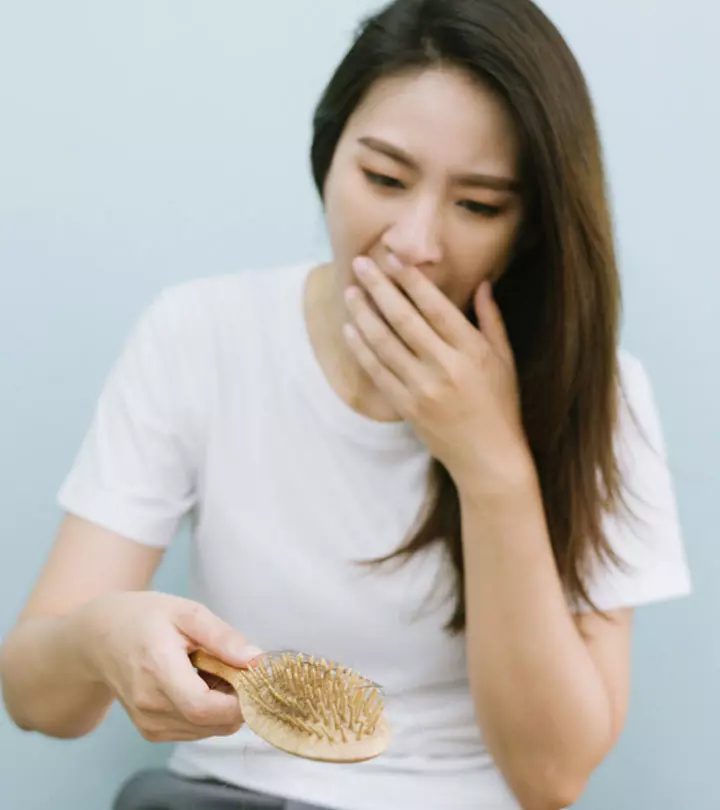
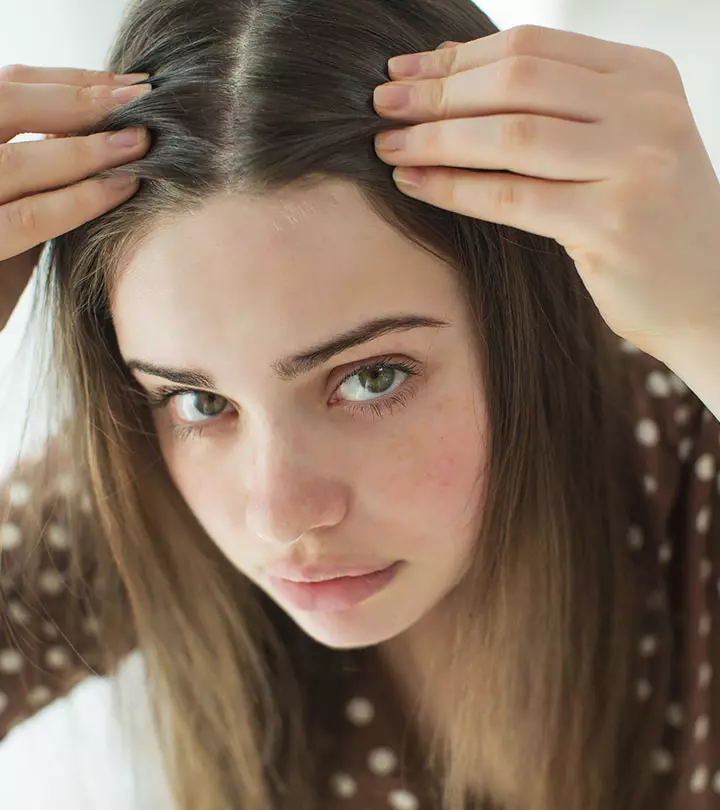
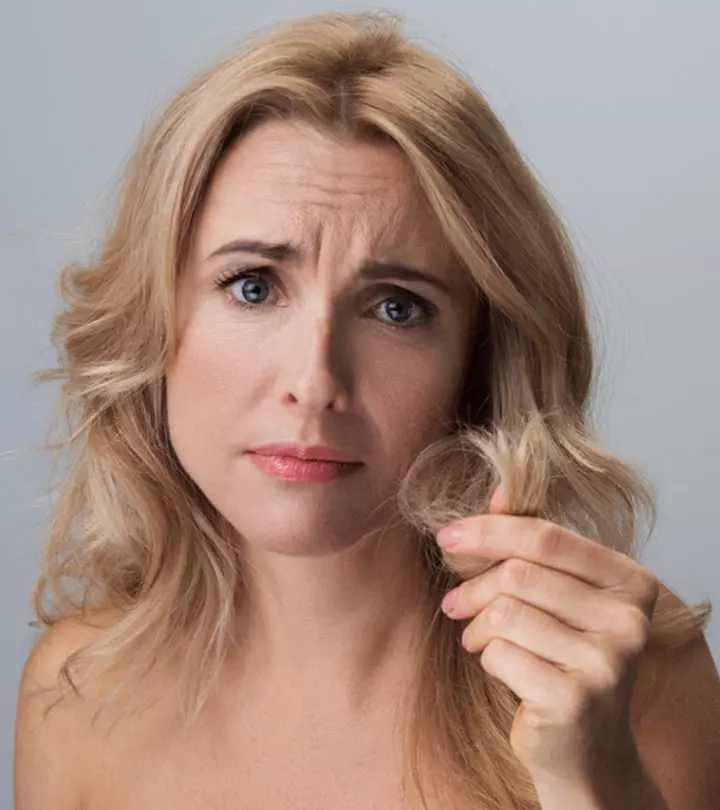
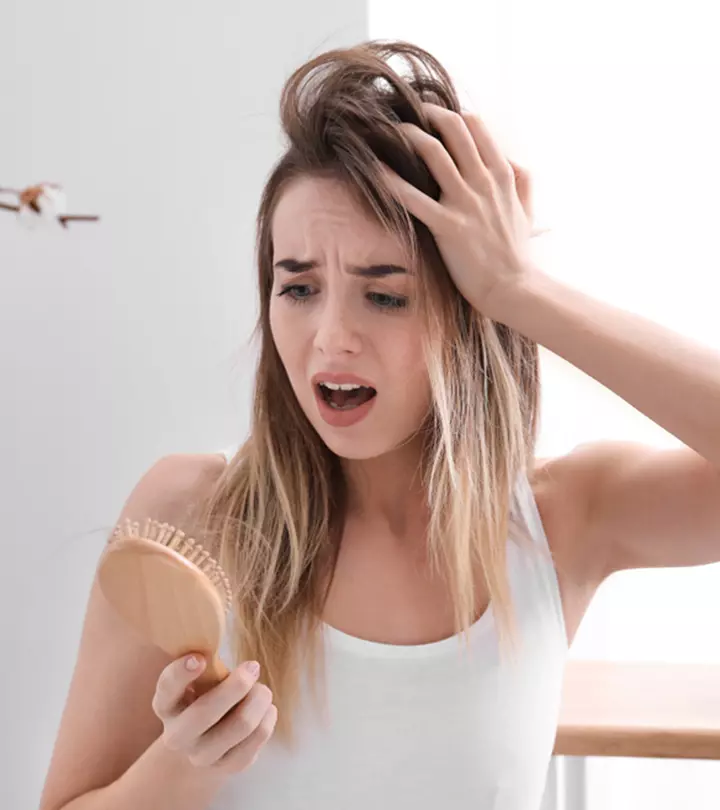
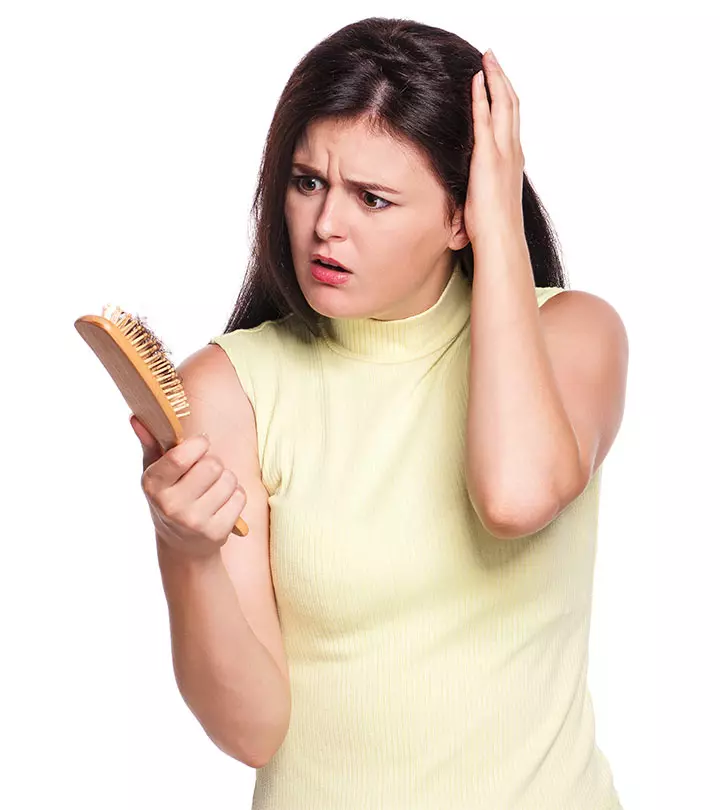
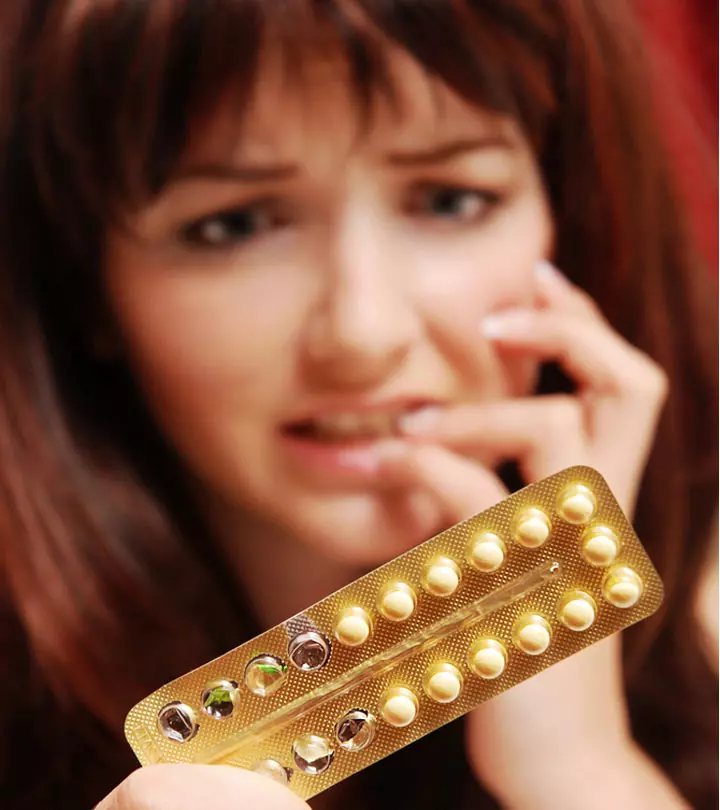

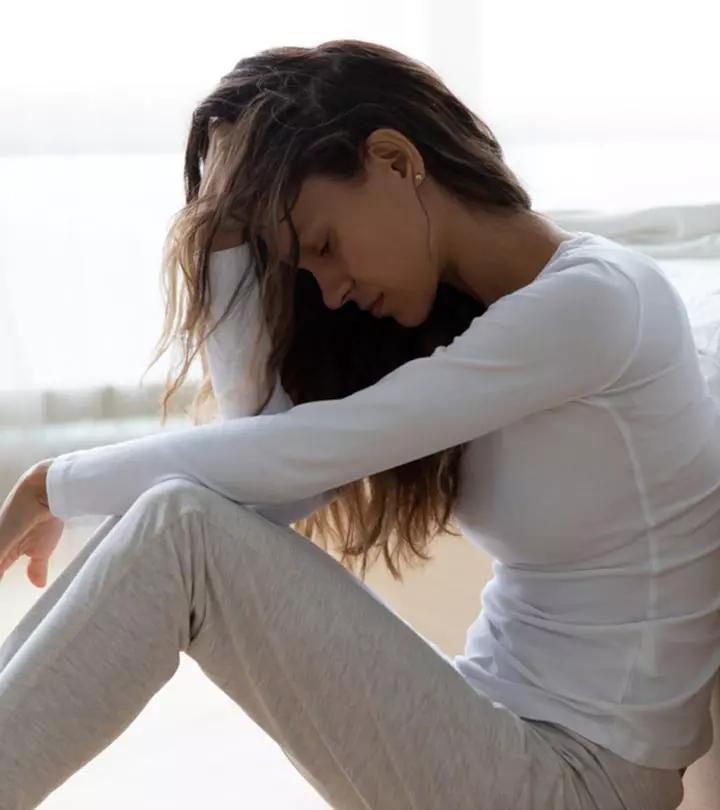
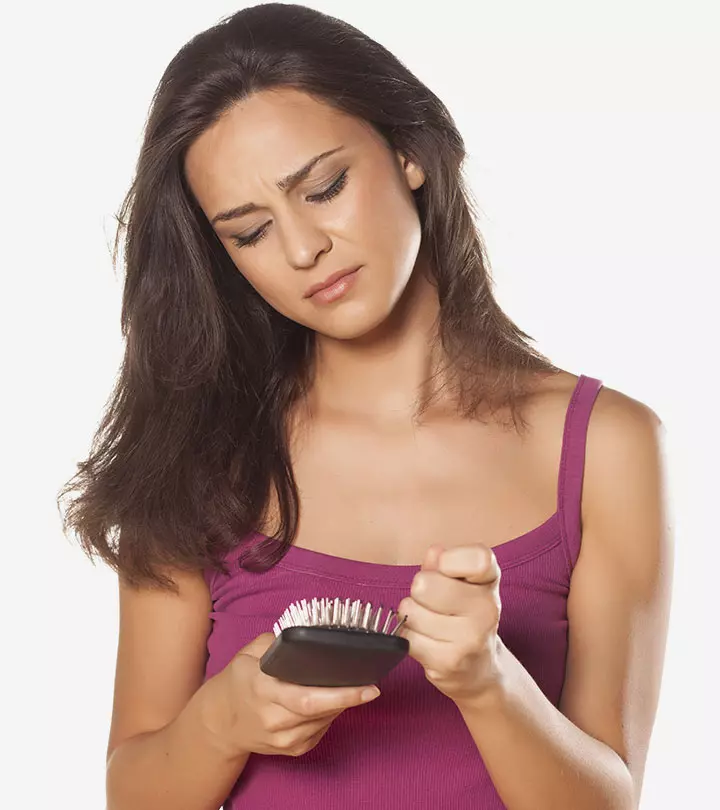
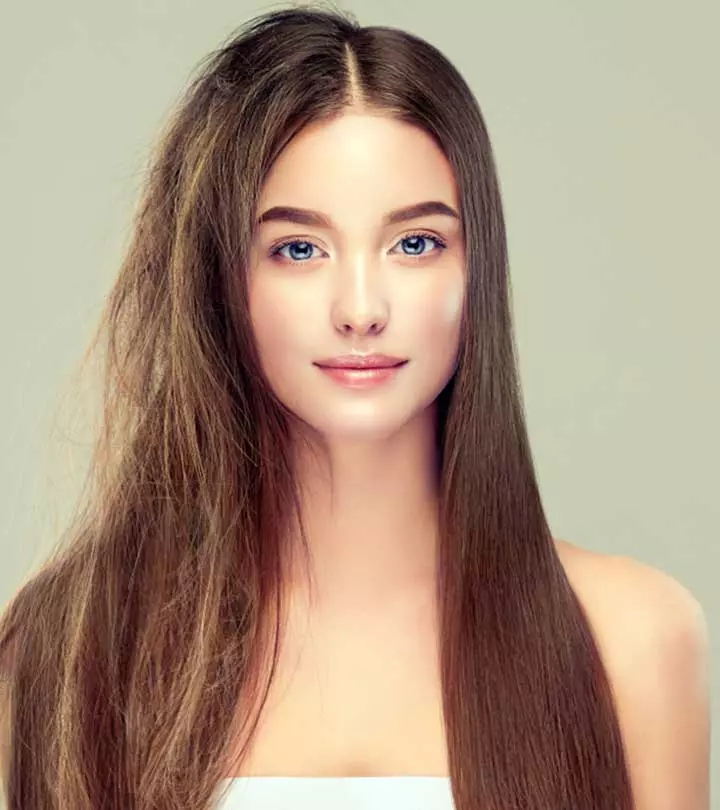
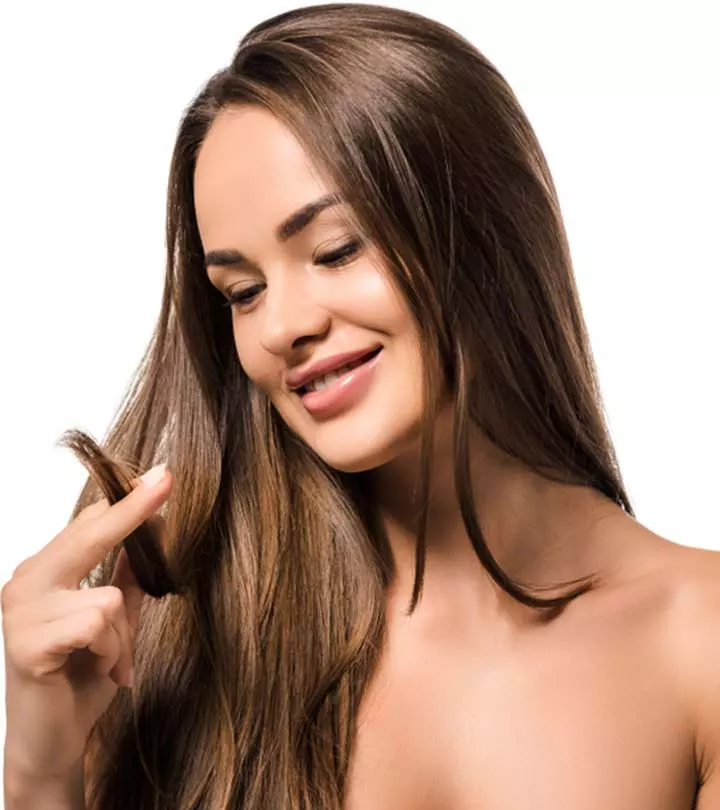
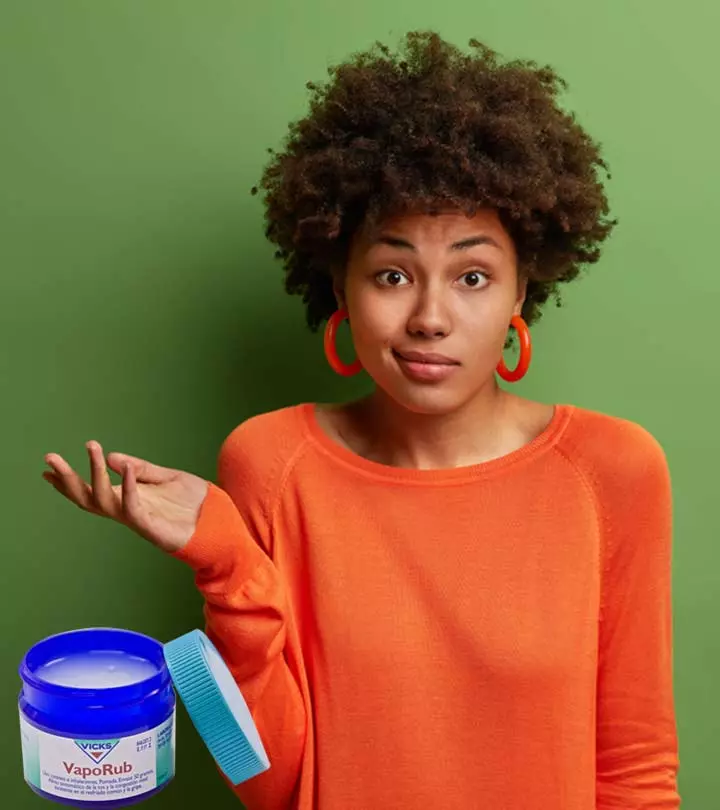



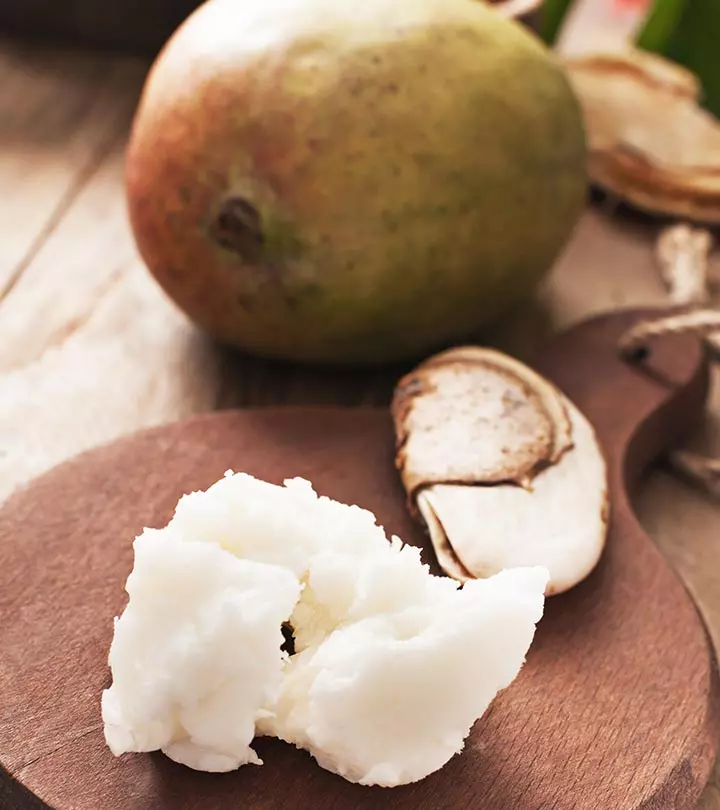
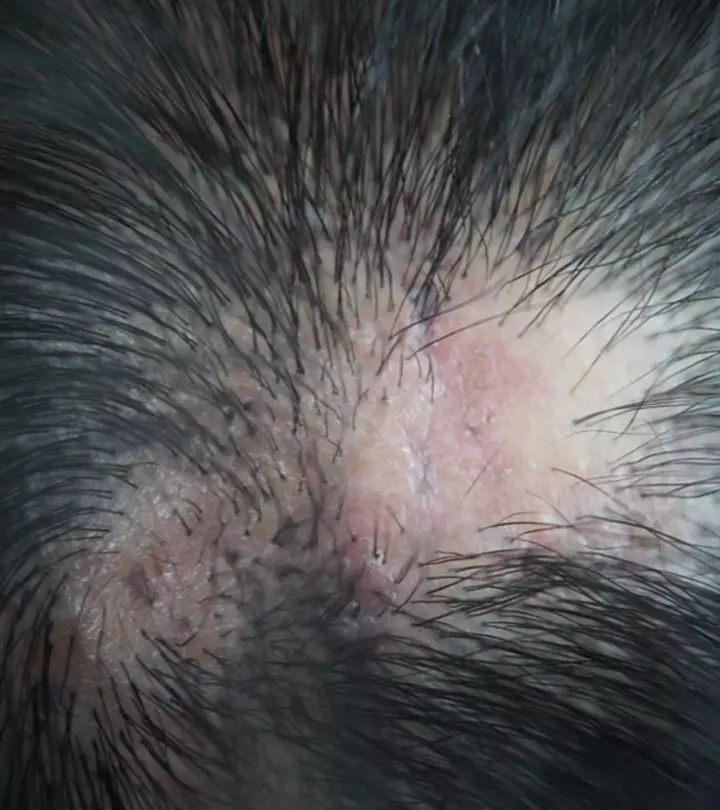
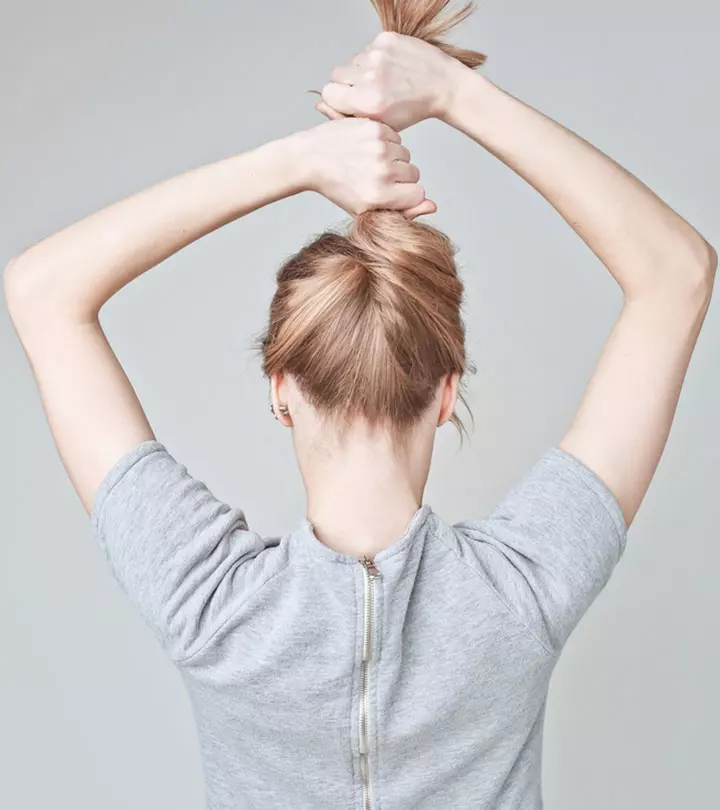
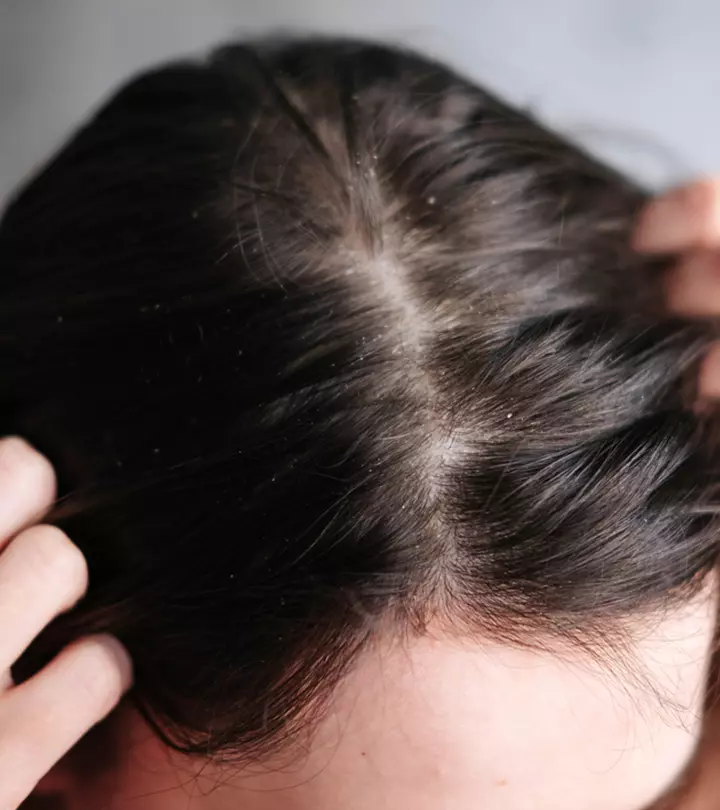
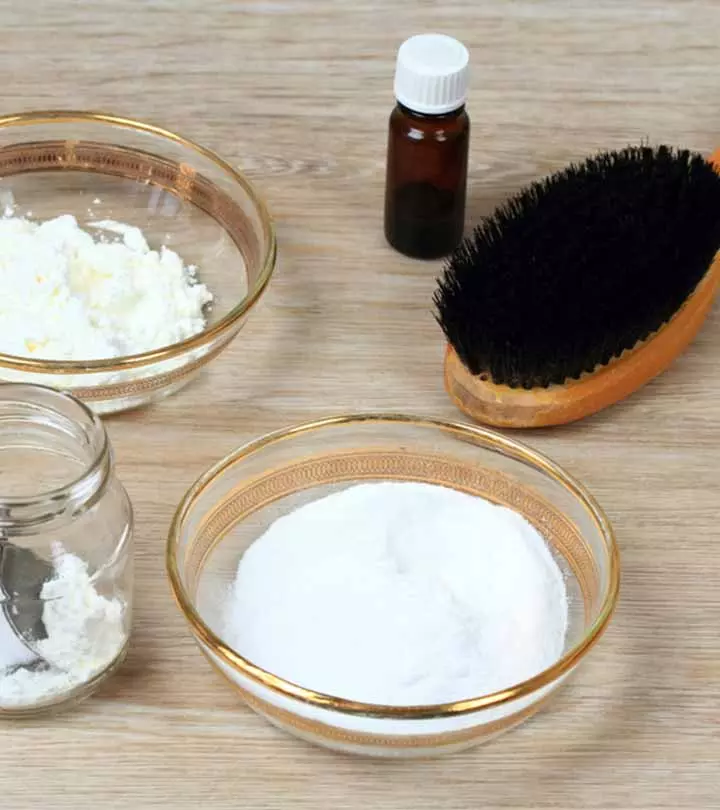
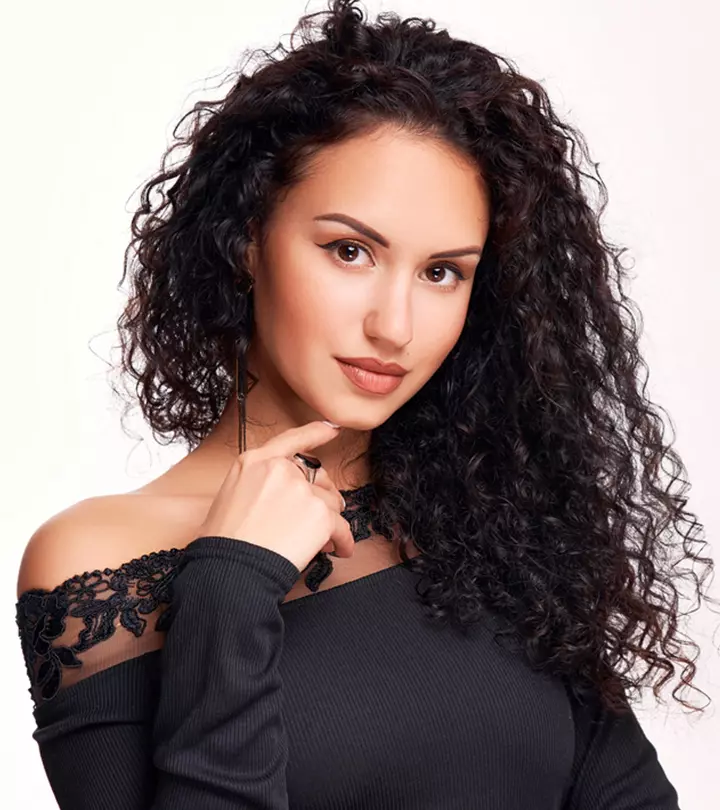
Community Experiences
Join the conversation and become a part of our empowering community! Share your stories, experiences, and insights to connect with other beauty, lifestyle, and health enthusiasts.